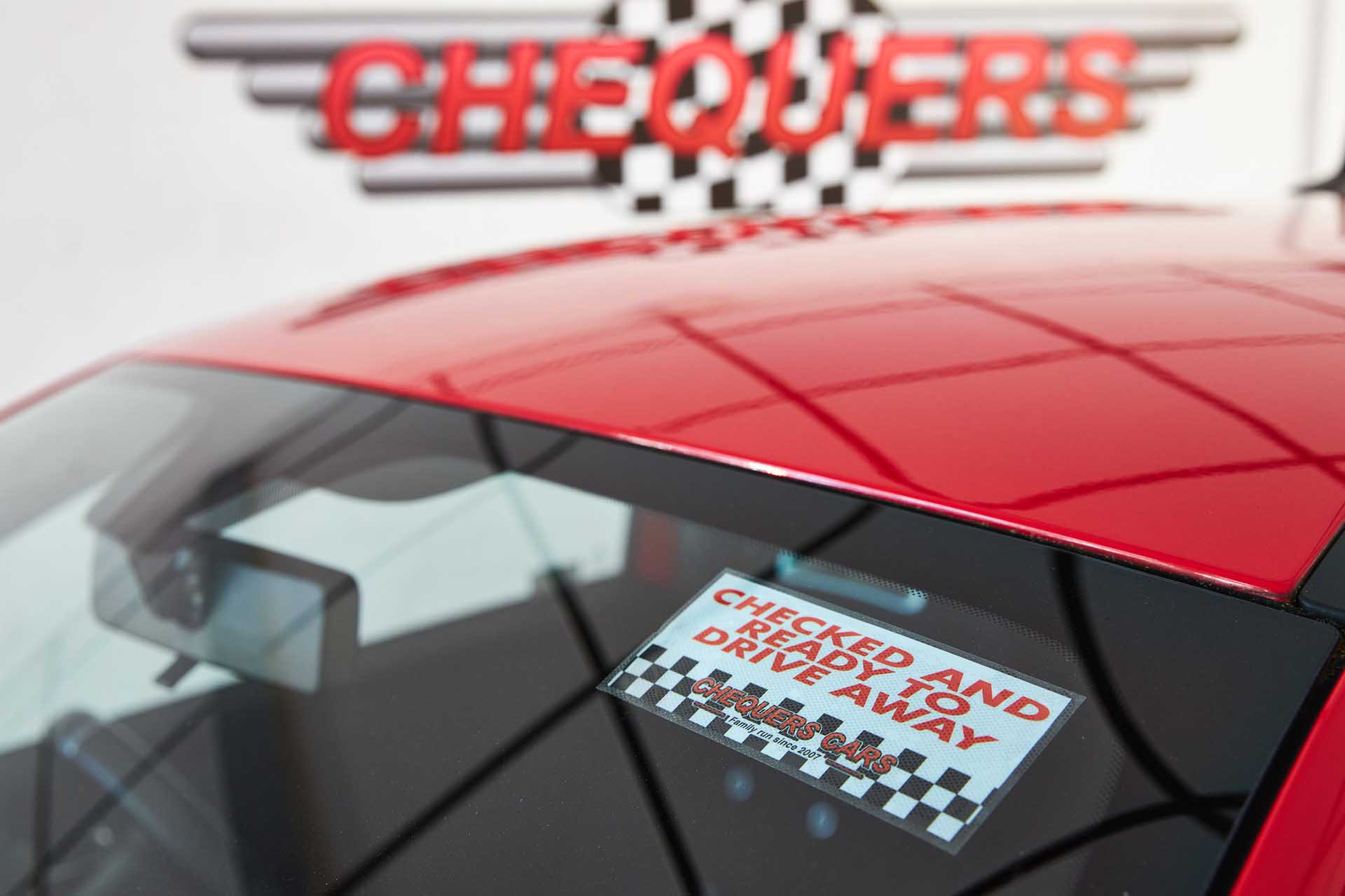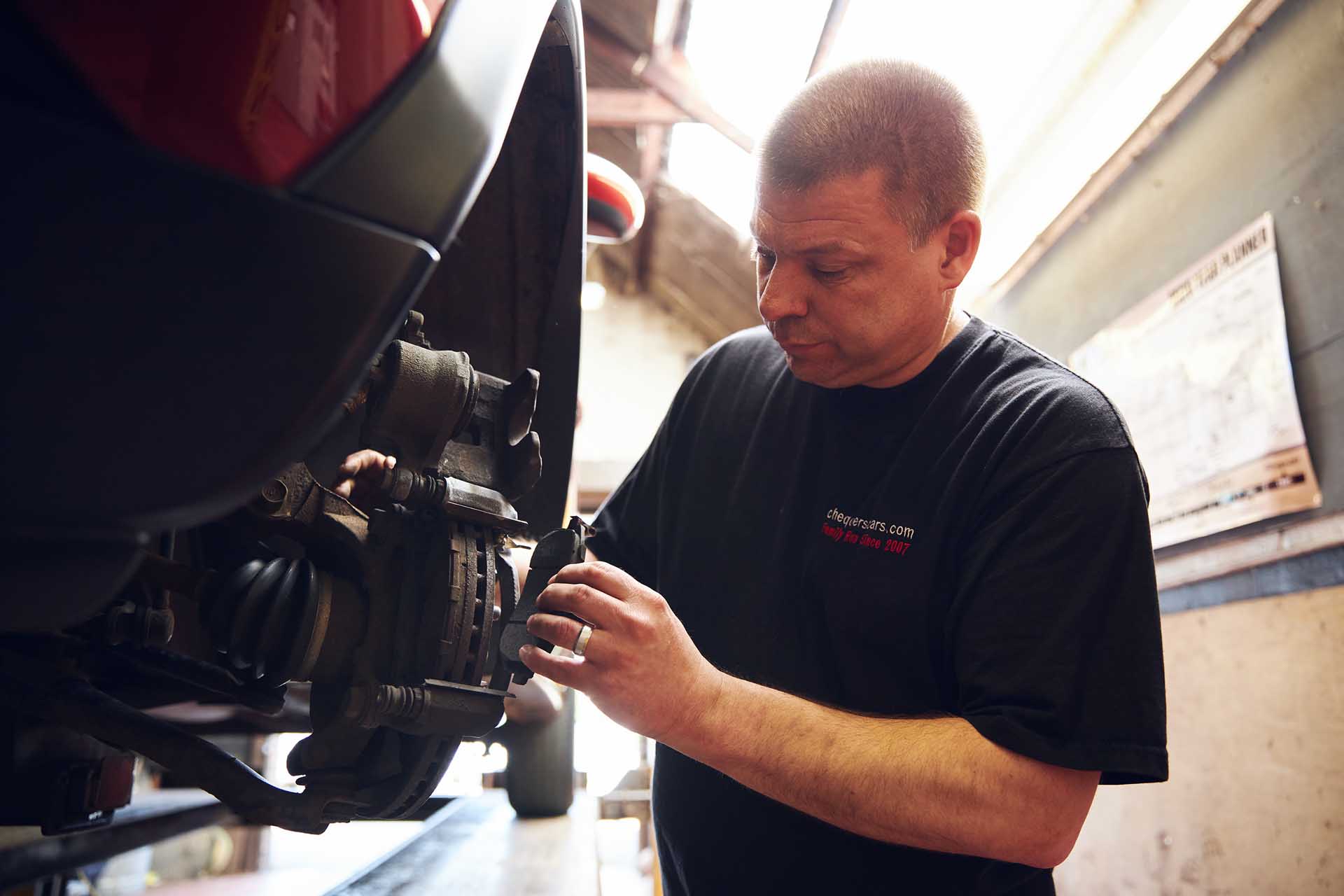Brake changes
We’re sure we don’t need to tell you why it’s crucial that your brakes are maintained and repaired regularly. But just what does “regularly” mean? And what if you sense there’s something wrong in the meantime?
It’s usually recommended that brake pads are replaced if the pad friction material has worn down to a thickness of 3mm. Different driving patterns will affect how quickly, and frequently, this happens. For example, motorway driving is generally gentler on your brake pads than busy city-centre driving.
If your annual mileage is 8,000 miles or more, we recommend that your braking system is checked at least twice a year. We’ll also take a look at it when we perform your MOT or service.
There are some other things to feel and listen out for, though, that might mean you need to pop in sooner. Grinding, squeaking, pulsating, pulling, sponginess, softness or a soft brake pedal might indicate that there’s a problem, as could the illumination of your brake warning light or if your handbrake sits a little high.
When it comes to brakes, it’s always better safe than sorry. So, bring your car into our workshop as soon as possible if you notice any of these symptoms, and we’ll take a thorough look for you straight away.
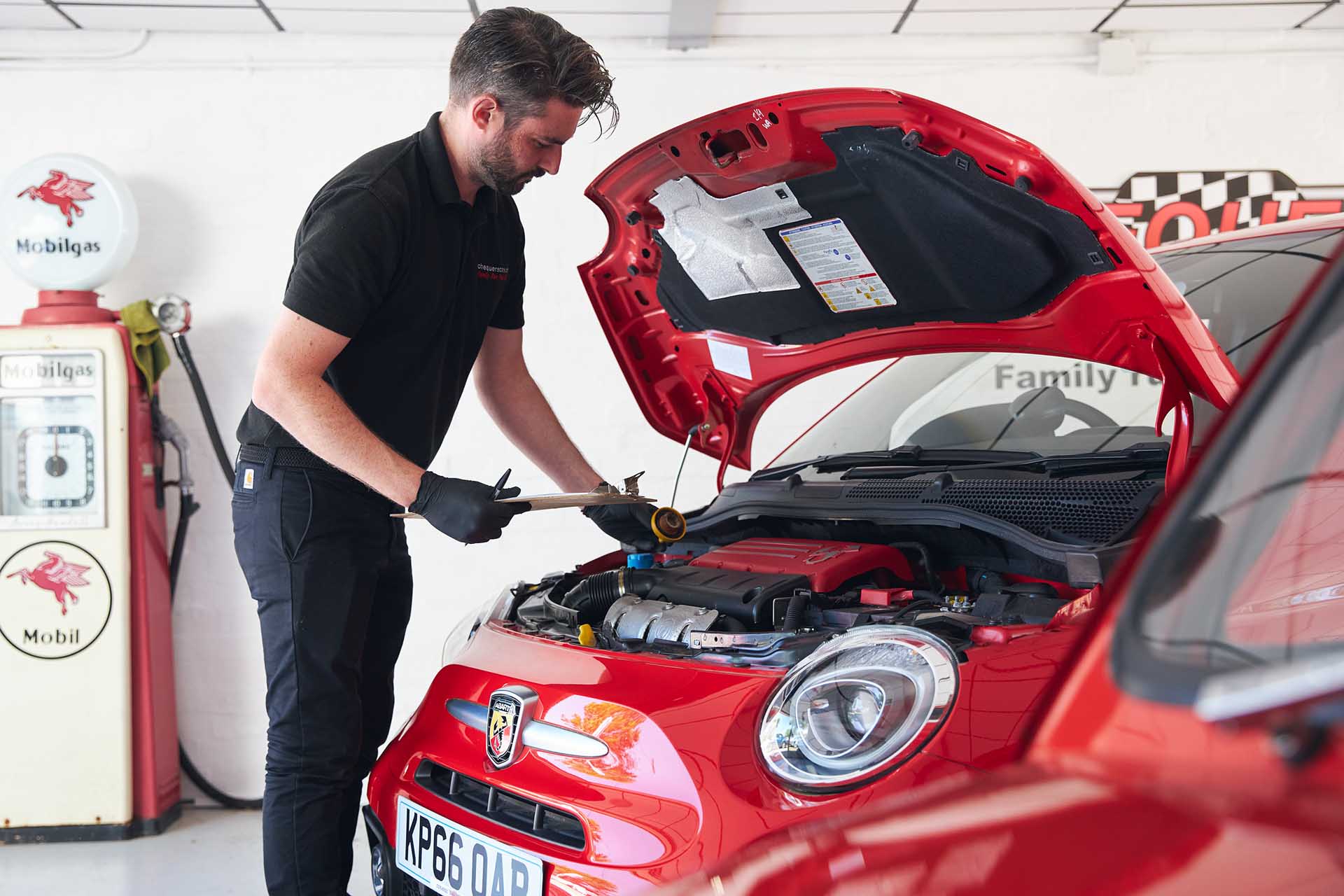
Brake fluid changes
It’s critical that your brake fluid is changed on a regular basis too, to keep your brakes performing well and to keep you safe on the road.
Most manufacturers say this should happen every 24 months, or every 24,000 miles – whichever happens first.
You should also come in for a brake fluid change if you find you’re needing to press down on your brake pedal more or harder.
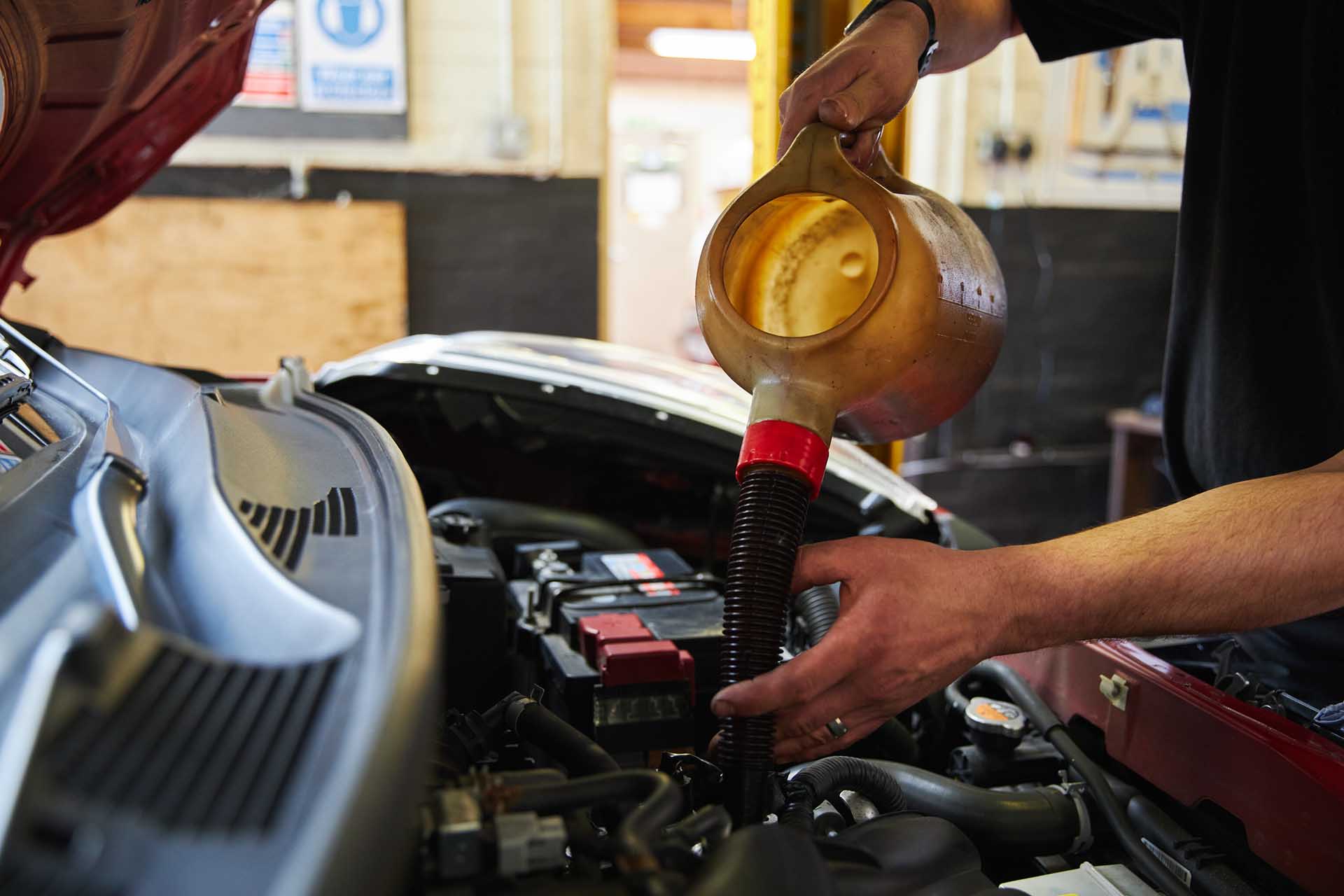
Suspension and steering
Your suspension and steering systems are vital for your safety and comfort while you’re driving, giving you a smooth ride on even the bumpiest roads.
The suspension system connects the vehicle to its wheels, while the steering system allows you to guide your vehicle. The systems are intrinsically connected, and can be inspected at the same time.
We’ll take a look at your suspension and steering as part of your car’s service. But you should also have them checked every 50,000 miles, when your tyres are replaced, when your brakes are serviced and when your oil and filters are changed.
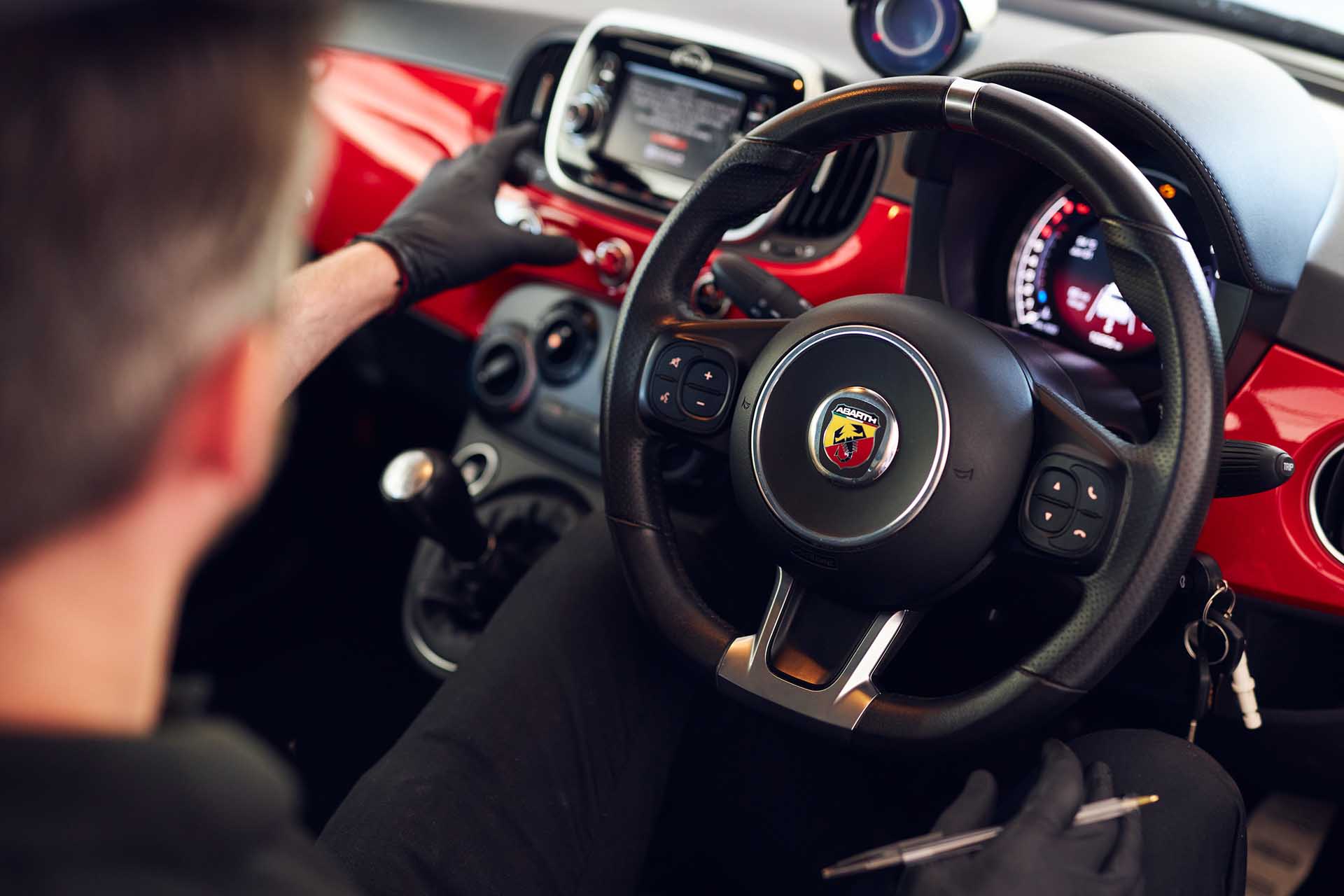
Gearbox, flywheel and clutch
No matter whether you drive a manual or an automatic car, it’s important to keep its transmission running smoothly.
Transmissions need regular servicing to guarantee optimum performance, economy and life. Take a look at our servicing page to see which of our services suit you and your needs.
You’ll also want to bring your vehicle in if you’re experiencing:
• Your clutch slipping
• Your clutch not releasing properly
• Noise or resistance when changing gears
These issues could indicate a problem with your clutch, gearbox or flywheel.
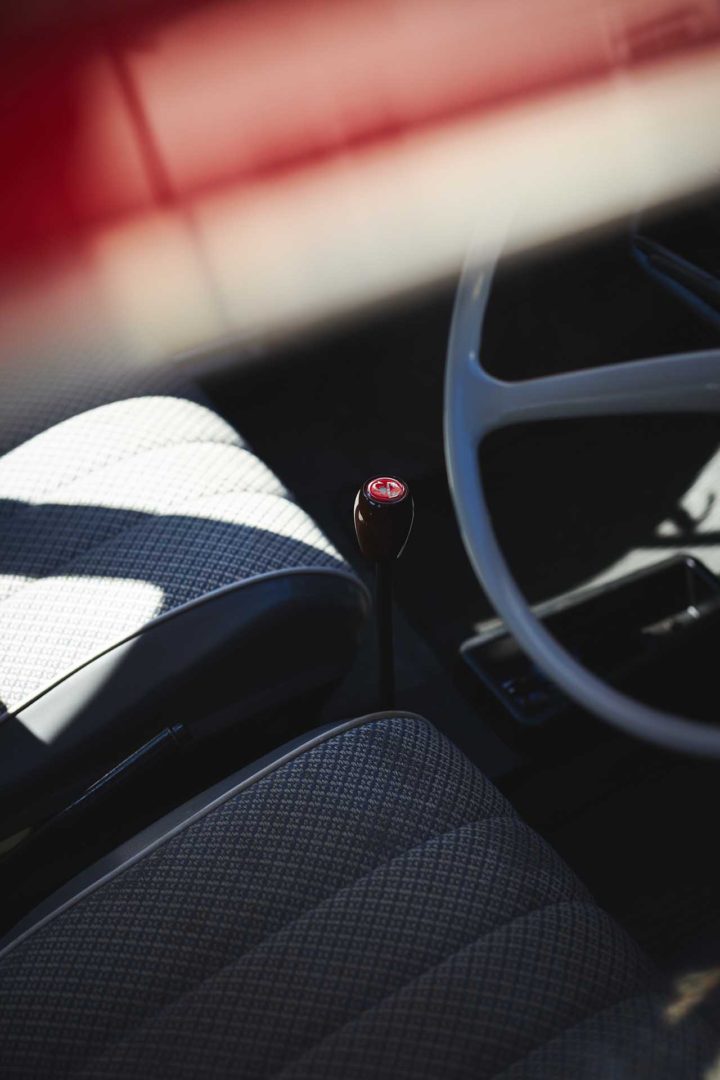
Exhaust systems
You’ll no doubt be aware that your exhaust is on the outside of your car. But did you know that its maintenance is essential in keeping the interior – and the people in it – safe?
If parts break, or become worn, dangerous gases can be released around the driver and passengers.
Damage to the exhaust it usually caused by its exposure to the elements. So, whether you’re concerned that debris in the road may have affected your exhaust, or you’d just like reassurance that your system is working properly, we’d be happy to take a look.
The good news is, parts are usually affordable and easy to maintain, too.
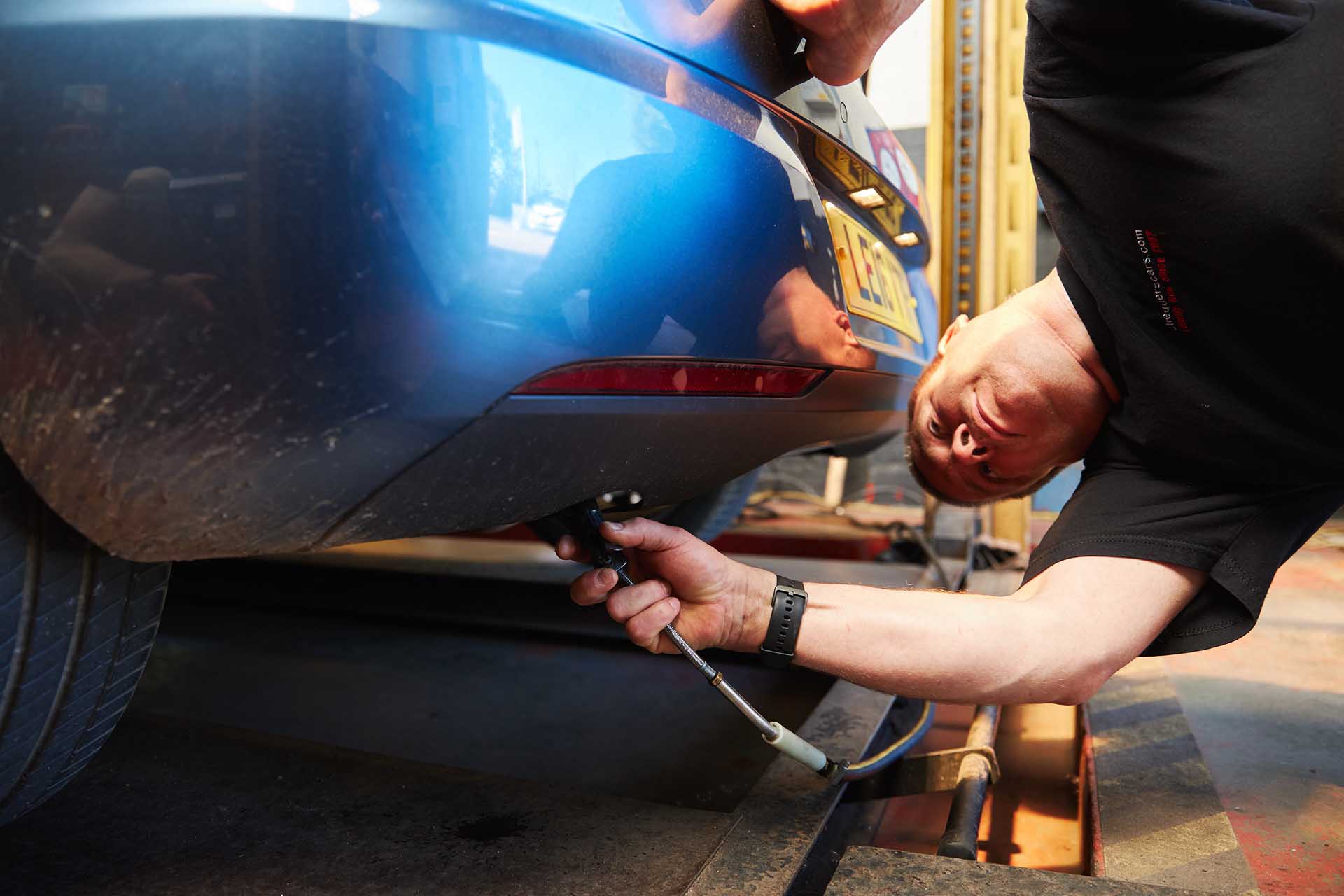
Turbo
Do you drive a diesel car? Then you’ll have a turbo engine – though many petrol cars now come with them, too. Turbos are formed of two main parts: a turbine and a compressor. These are linked, and spin together at incredibly high speeds to pull through lots of air.
More power, more torque, less fuel, less noise. There are clear advantages to having a turbo engine. But they can add cost and complexity, often proving costly if they fail.
At Chequers Cars Workshop, we’re highly experienced in replacing, repairing and reconditioning turbo engines, and pride ourselves on doing so at fantastic value.
We even offer refurbished turbos, so you can keep your costs down and your engine running.

Cambelts
A cambelt, timing chain or timing belt is part of the engine that makes its valves open and close when they should. In other words, it’s vital, and if you don’t address damage in time it can prove catastrophic to your car.
If you’re experiencing a ticking noise coming from your engine, if your engine won’t turn over or misfires, or if there’s oil leaking from the front of your car, you may have a problem with your cambelt and you’ll need to bring it into the garage.
Even if you aren’t seeing any of these symptoms, most manufacturers recommend replacing the cambelt after a set period of time. Why not look this up now?
